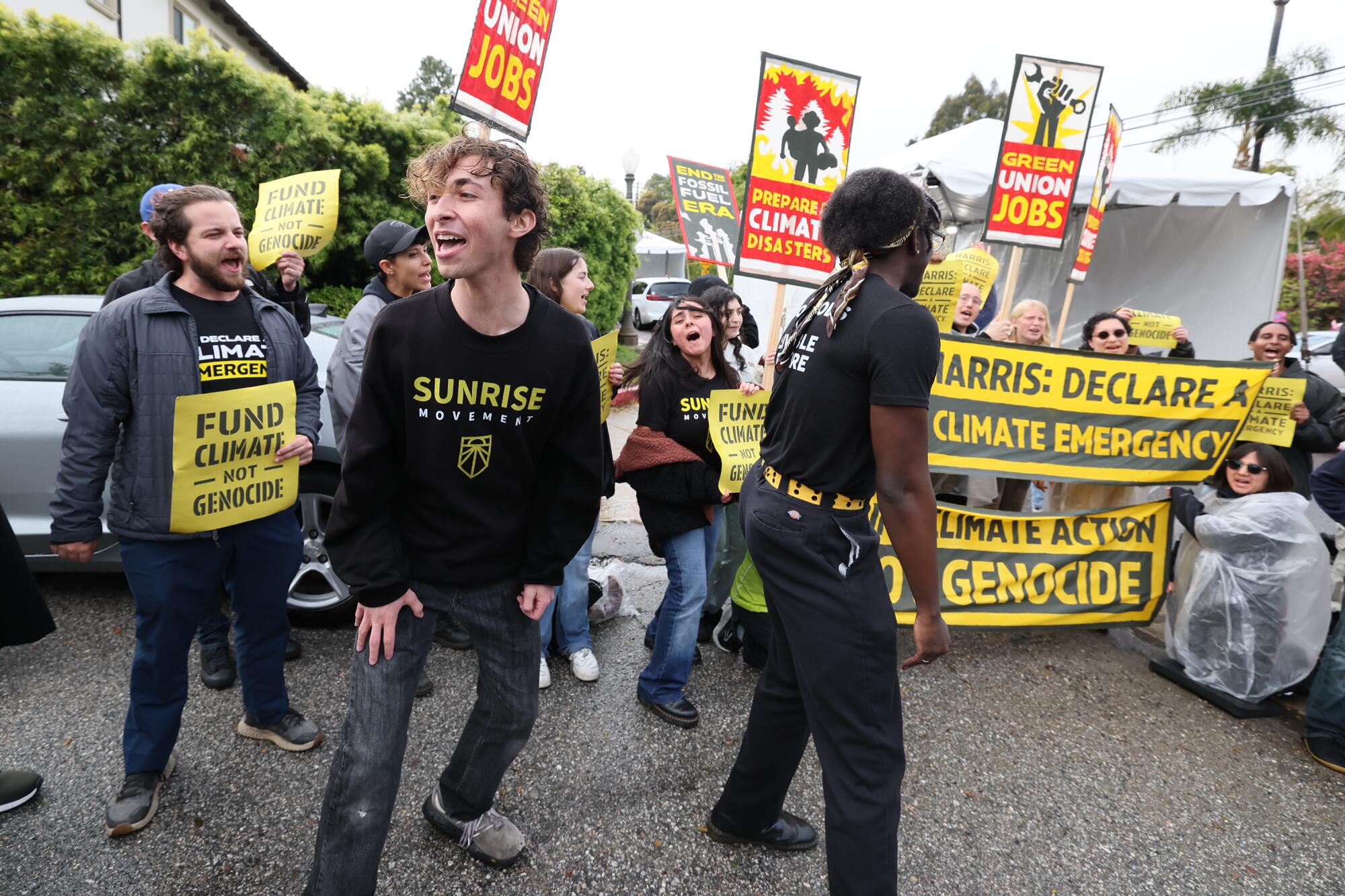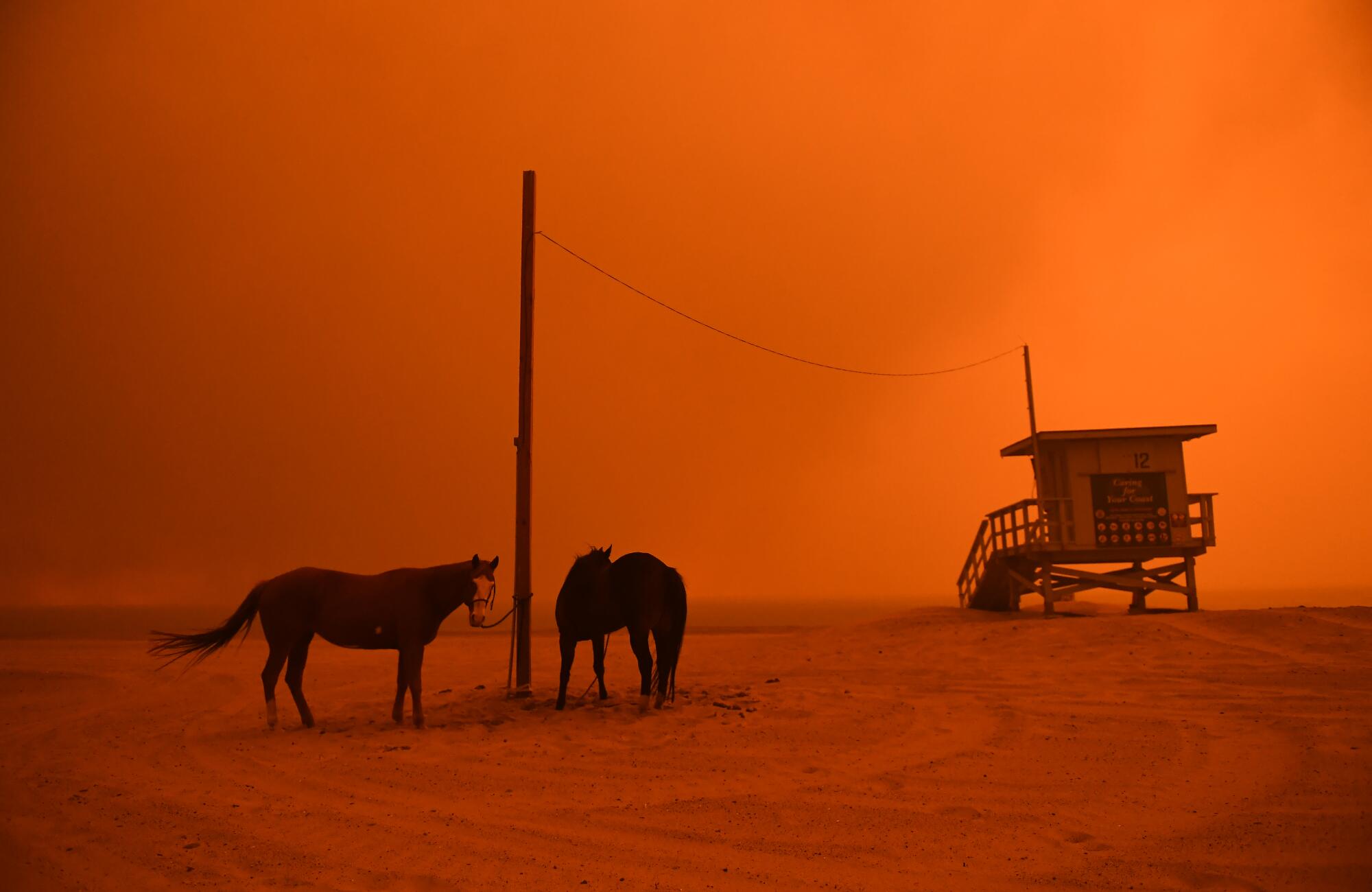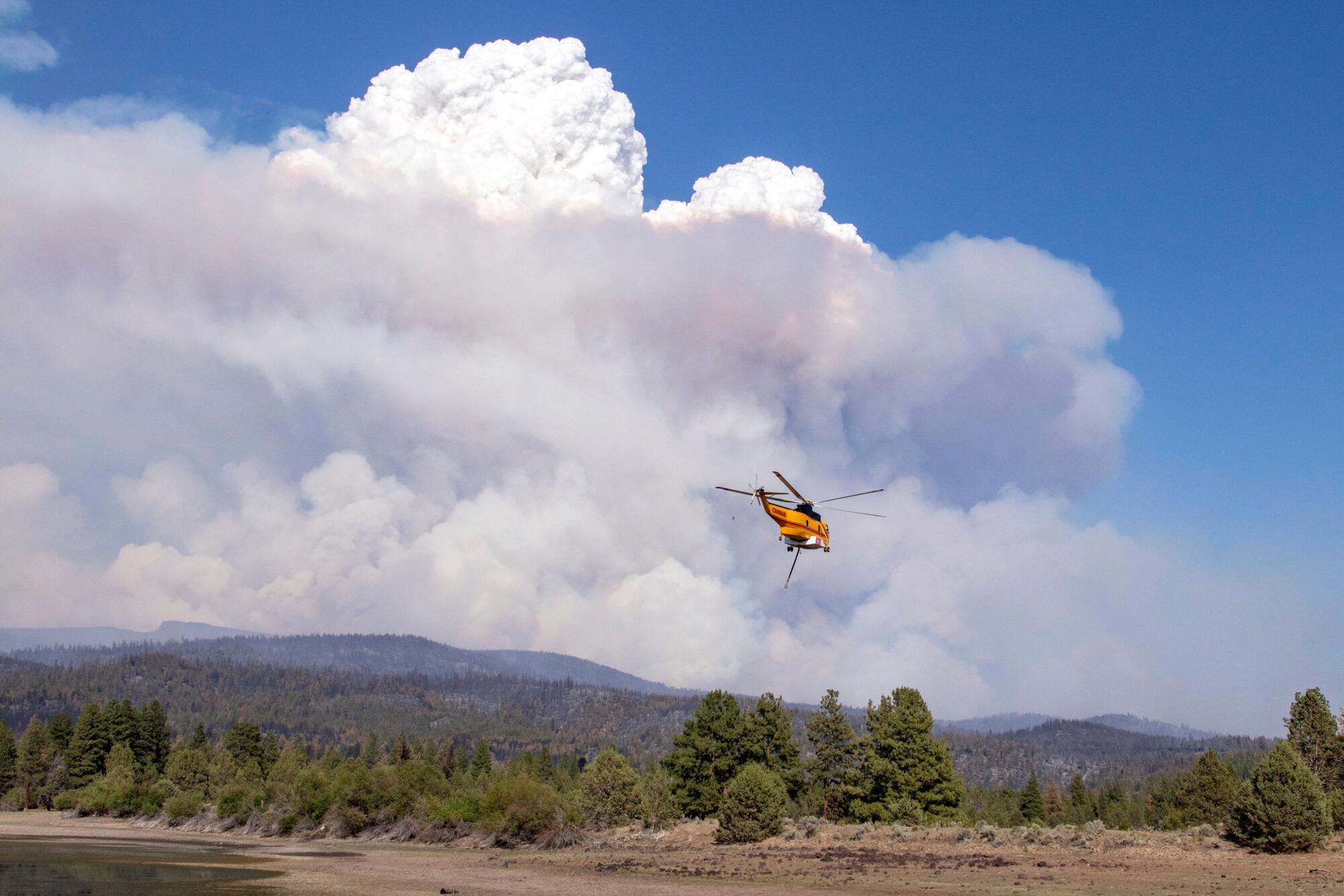
- Share via
When Camp Hess Kramer burned down in 2018, I cried. My family had gone to the summer camp for generations. My grandma won the “best camper” award in the same dining hall where I tried soda for the first time. Overnight, it was gone. The place I grew up, once ringing with songs and laughter, had mutated into a black abyss strewn with the wiry corpses of oak trees.
It was one of the worst fire seasons in California history. Entire towns and many lives were lost.
In 2020, when COVID hit, I was just about to finish middle school. Instead of playing Magic: The Gathering with my friends in the hallways, I stared into my computer screen consuming information about the climate crisis. Feelings of terror morphed into anger. Decades of warning signs had been ignored because big oil was buying out politicians. These disasters were preventable; Hess Kramer didn’t have to burn.

So, I signed up for every climate organization I could find online. My first meeting with the Sunrise Movement’s new Los Angeles youth hub was filled with the intimidating faces of high school seniors. I saw the gleam in their eyes as they talked about a future where everyone had a right to clean air, clean water, and good and meaningful jobs. They led protests and created spreadsheets and cold-called people — things I had no idea how to do.
I was 15 when Sunrise asked me to help lead the local portion of a campaign for a national Civilian Climate Corps. The idea was to push the federal government to create a program employing young people in good-paying jobs fighting the climate crisis.
Soon I was planning a sit-in at Sen. Dianne Feinstein’s Los Angeles office. It was 2021. We slept on the sidewalk for two nights until Feinstein agreed to support the program. Then we demanded a Zoom meeting with Sen. Alex Padilla to get his support too. Around the country for many years, our movement continued to push for a Civilian Climate Corps. In June, the first cohort of 9,000 young people were sworn in by the White House.
But fire season is here, and the places I love are still in danger and my future is still uncertain. We could be looking at four years with a presidential administration that is in the pocket of fossil fuel billionaires.

On July 29, eight of us blockaded the wooden door of JD Vance’s Senate office in Washington. Many more Sunrisers lined the marble hallways. Young people from all walks of life sang in unison: “I went up to JD Vance and I took back my humanity/ Ain’t nobody gonna walk all over me.”
In 2020, Vance, now a potential vice president, asserted that climate change was a threat. Yet after receiving nearly $300,000 from the fossil fuel industry during his 2022 Senate campaign, Vance seems to no longer believe this crisis is human-made.
Police began shoving their way through the crowd toward the door. Handcuffs dangled by their side. I wanted to run, but as the police gave their third warning, I remembered why I was here: An image of Camp Hess Kramer flashed through my head.
I was taken outside with my hands behind my back. I was told I was under arrest, alone in a sea of blue uniforms, but in the distance I heard 150 Sunrisers break out into another song. I could just make out the words. “Where you go, I will go, Simon. Where you go, I will go.”
Simon Aron is a freshman at Brown University, where he plans to continue his activism.







